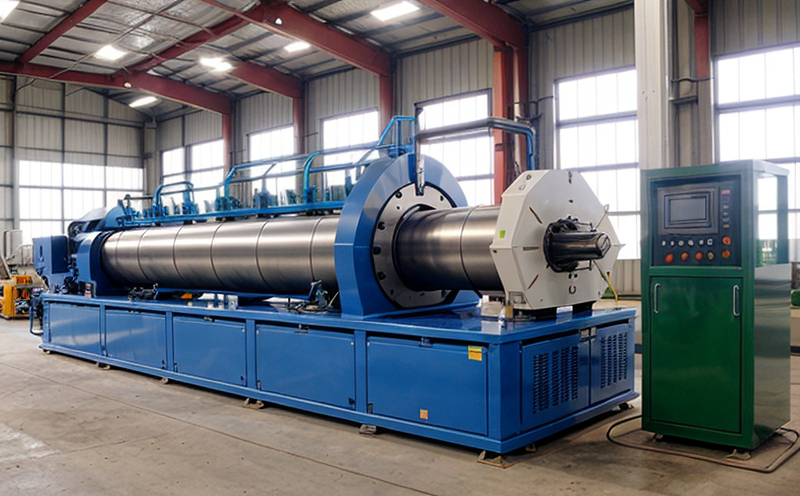ASTM E3100 Recycling Process Environmental Performance
The ASTM E3100 standard provides a comprehensive framework for evaluating the environmental performance of recycling processes. This service is essential for waste management and recycling testing, ensuring that recycling operations are not only efficient but also environmentally responsible.
Recycling is crucial in mitigating the environmental impact of resource depletion and waste accumulation. However, to ensure that these processes contribute positively to sustainability goals, it’s imperative to measure their environmental performance accurately. The ASTM E3100 standard addresses this need by offering a structured approach to quantifying the environmental impacts associated with recycling processes.
The test evaluates multiple parameters including energy consumption, water usage, air emissions, and waste generation during different stages of the recycling cycle. This information is critical for quality managers, compliance officers, R&D engineers, and procurement teams who are responsible for ensuring that their operations align with sustainability goals. By adhering to ASTM E3100 standards, organizations can demonstrate their commitment to reducing the environmental footprint of their recycling processes.
The methodology involves a lifecycle assessment (LCA) approach which considers all stages from raw material extraction through product distribution and disposal. This holistic view allows for a more accurate assessment of the overall impact on the environment. The test also includes specific criteria that must be met to ensure compliance with industry standards, such as ISO 14040 and ISO 14044.
The ASTM E3100 standard is widely recognized and used by various sectors including manufacturing, construction, electronics, and automotive industries. Compliance with this standard not only ensures environmental responsibility but also enhances the reputation of the organization in the market. It helps to differentiate companies that are proactive about sustainability from those that are merely reactive.
The test results provide valuable insights into areas where improvements can be made within recycling processes. For instance, if a particular stage consumes more energy than expected, this information can guide process optimization efforts aimed at reducing operational costs while improving efficiency and environmental performance.
Moreover, the data generated by ASTM E3100 testing facilitates better decision-making regarding material selection, equipment upgrades, and operational procedures. It supports continuous improvement initiatives that drive sustainable development within recycling operations. By integrating these test results into strategic planning processes, organizations can make informed decisions that align with broader sustainability objectives.
Another key benefit of this service is its role in facilitating compliance with regulatory requirements related to waste management and recycling practices. As governments worldwide introduce stricter regulations on environmental protection, having reliable data from ASTM E3100 tests becomes increasingly important for maintaining legal compliance without compromising operational effectiveness.
Scope and Methodology
| Parameter | Description |
|---|---|
| Raw Material Extraction | Evaluation of energy consumption, water usage, and emissions from extraction processes. |
| Material Processing | Measurement of electricity use, heat input, and waste generation during processing stages. |
| Product Distribution | Analysis of fuel efficiency in transportation methods used for distributing recycled products. |
| End-of-Life Disposal | Evaluation of recycling rates, landfill diversion percentages, and other indicators related to post-consumer waste management. |
| Methodology | Description |
|---|---|
| Lifecycle Assessment (LCA) | A structured approach used to assess environmental impacts associated with all stages of a product's life cycle. |
| Data Collection | Gathering detailed data on various parameters such as energy consumption, water usage, air emissions, and waste generation throughout the recycling process. |
| Statistical Analysis | Use of statistical tools to analyze collected data and derive meaningful insights about environmental performance. |
| Reporting | Compilation of all findings into a comprehensive report that outlines key metrics, trends, and recommendations for improvement. |
Industry Applications
- Manufacturing: Assessing the environmental impact of producing recycled materials compared to virgin raw materials.
- Construction: Evaluating the sustainability aspects of using recycled construction waste in new projects.
- Electronics: Determining the energy efficiency and resource recovery potential of e-waste recycling processes.
- Automotive: Analyzing how different methods of automotive component recycling affect overall environmental impact.
Key Applications
This service has broad applicability across various sectors, particularly those focused on sustainable development. For instance:
- In the manufacturing sector, manufacturers can use this test to compare the environmental benefits of using recycled versus virgin materials.
- The construction industry benefits from understanding the lifecycle impacts of incorporating recycled building components into new structures.
- Electronics firms gain valuable insights into reducing their carbon footprint through improved e-waste recycling practices.
- Automotive companies leverage this information to optimize production processes, enhance resource management strategies, and promote eco-friendly manufacturing methods.
Why Choose This Test?
Selecting ASTM E3100 Recycling Process Environmental Performance for your testing needs offers several advantages:
- Comprehensive Analysis: Provides a thorough evaluation of environmental impacts across all stages of the recycling process.
- Regulatory Compliance: Ensures adherence to international standards like ISO 14040 and ISO 14044, enhancing your organization's reputation for sustainability.
- Data-Driven Decisions: Offers actionable insights that guide continuous improvement efforts aimed at minimizing environmental impacts.
- Credibility: Demonstrates a commitment to responsible waste management practices, which is increasingly important in today’s market environment.
- Sustainability Leadership: Positions your company as a leader in sustainability within its industry.
This service not only helps meet regulatory requirements but also supports long-term strategic planning focused on reducing environmental footprints. It enables organizations to make informed decisions that align with broader sustainability goals while maintaining operational efficiency.





